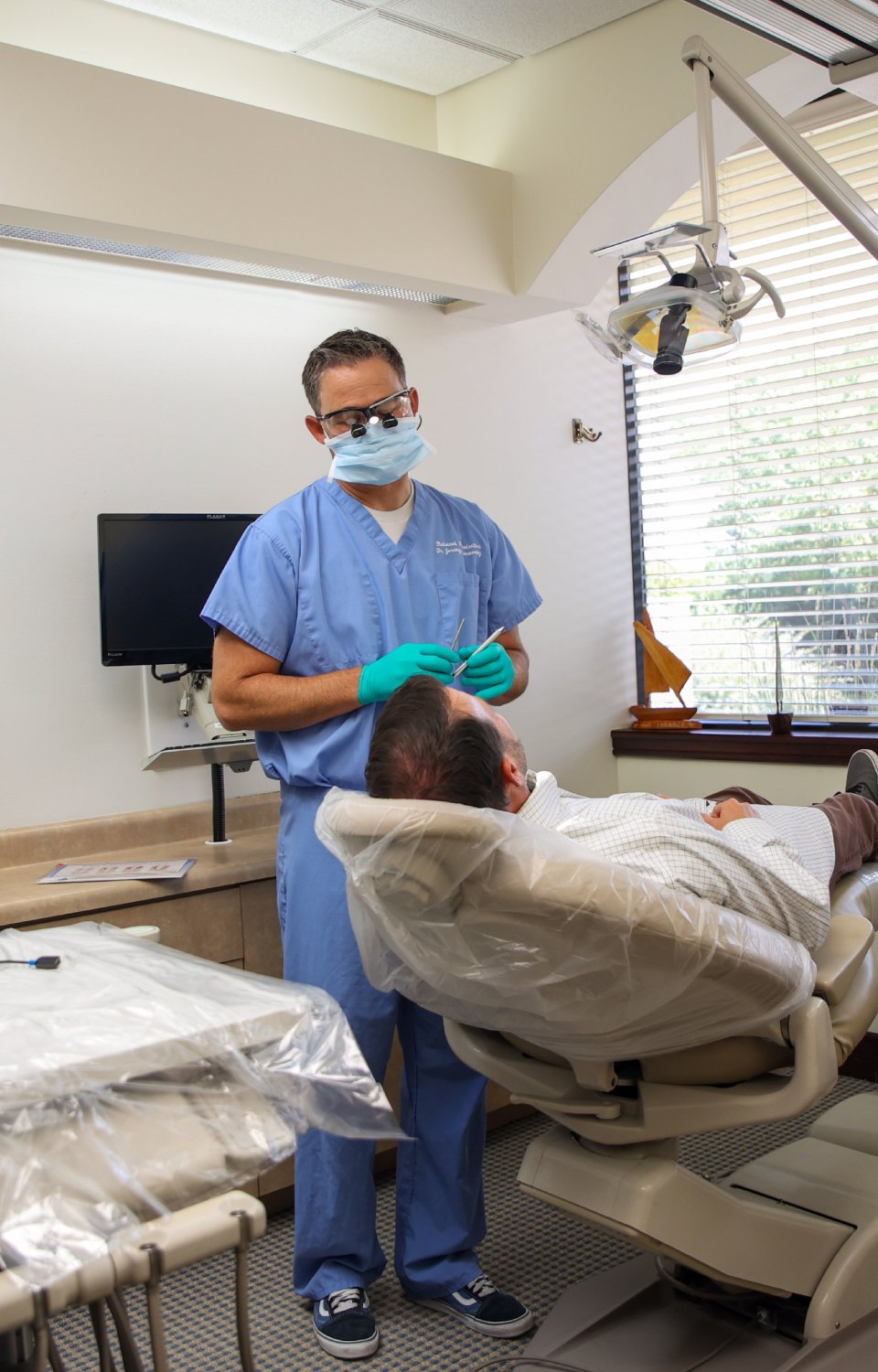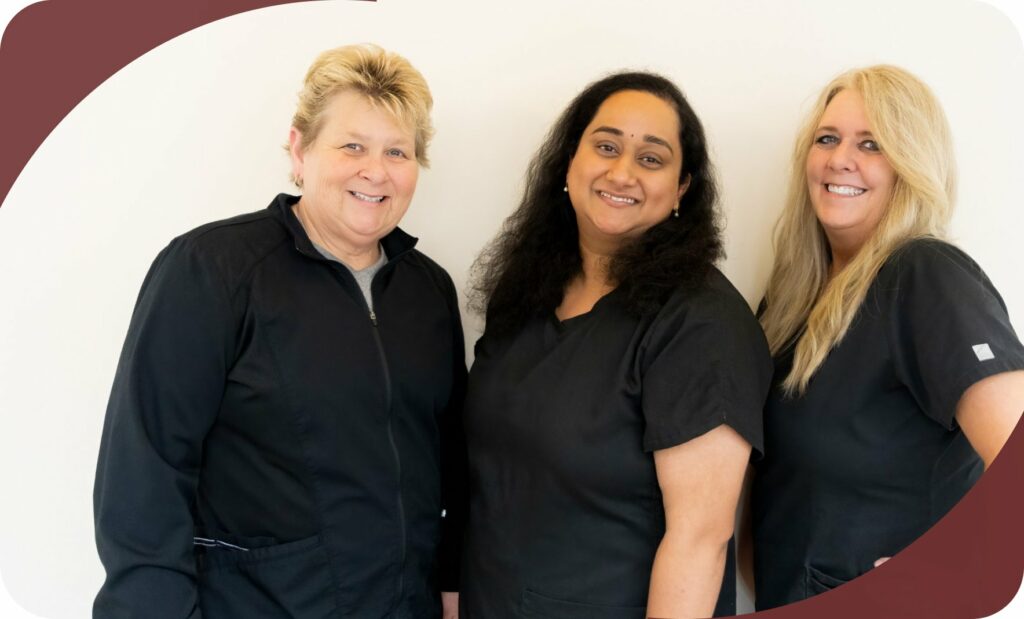



“Perio” is Greek for “around” and “odont” is Greek for “tooth.” So periodontal diseases affect the gum (gingiva) and the bone around the teeth. “Gingivitis” is inflammation limited to the soft tissues. In “periodontitis” the inflammation has caused breakdown of the bone.
The primary cause of gum disease is bacteria left stagnant in the crevice between the gum and the teeth. The bacteria are mostly anaerobes. “An-aero” means “no air”; they cannot live in air or oxygen. When we clean we disrupt and aerate everywhere we reach. If we consistently miss somewhere the periodontal pathogens (disease producing germs) can live there and cause:
The deeper the pockets the less able you are to prevent pathogenic bacteria from living in their depths.
Periodontal diseases rarely hurt. They don’t even itch. Often they are not visible. Yet, the majority of adults who do not floss have some degree of breakdown. Periodontal problems are the most common reason for adult tooth loss.
First we try to solve your gum problems non-surgically. Bacterial plaque and calculus (hard deposits) are “root planed” off the root surfaces. We usually use local anesthesia so there is no pain. Headphone music and nitrous oxide are available. We repeatedly demonstrate effective, efficient cleaning techniques for you to use so you can control the gum disease.
The dental hygienists who are responsible for this phase of treatment are highly trained professionals with years of experience in more advanced periodontal therapy. You will be very impressed with the dental hygienist who serves you.
After root planing, we give you 4 to 8 weeks to achieve the maximum healing possible with diligent daily cleaning. Midway in that period you have a “healing check” appointment with a dental assistant. During that visit we can usually suggest ways for you to clean weak areas better in order to get more healing.
After maximum healing from conservative treatment, our doctors reexamine your mouth. Significant improvements are expected. Pockets should have decreased in depth and become more cleansible. Your mouth should taste and feel better. Surface bleeding should have stopped. Cold sensitivity should have decreased. We analyze and explain thoroughly any remaining problems. Treatment needs, options, and recommendations are discussed. Decisions about future treatment are made.
At the reevaluation, if not before, our doctors will analyze your bite (occlusion). In patients who have lost any supporting bone around their teeth, it is important that biting forces be well shared and well directed. The occlusion is adjusted to minimize the lateral, traumatic forces. If you brux (grind or clench) your teeth, a night guard appliance is likely indicated.
If after conservative treatment pockets remain that are too deep for you to clean, surgery is usually indicated at those deep sites. Shallow bone defects can be leveled out. For more information click here.
Deep bone defects can require regenerative sugical techniques. For more information click here.
Procedures are explained in detail in advance. It is expected that people do not feel pain during or after surgery. Many people only miss 1 day of work.
Periodontal disease can and will recur if you do not follow a strict maintenance program. You play the major preventive role by using the recommended cleaning tools daily, and not missing anywhere. At 3 to 4 month intervals you will be examined initially by us and later your general dentist to assure that the periodontal disease is under control. At the same appointment you will receive a full mouth cleaning to help prevent breakdown.
Simply call as at (801) 293-8833 to schedule your next appointment.
